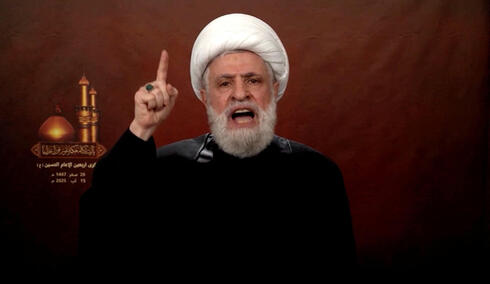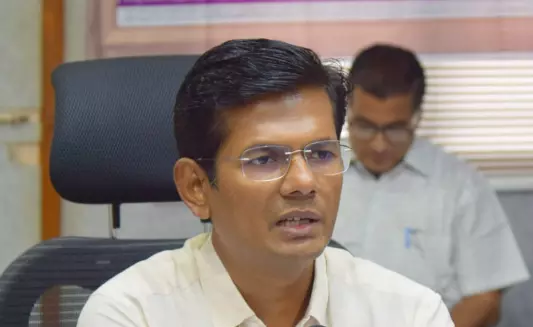By Lior Ben Ari
Copyright ynetnews

More than a month has passed since Prime Minister Benjamin Netanyahu’s interview with i24NEWS, in which he declared his commitment to the vision of a “Greater Israel,” encompassing not only the West Bank but also parts of Jordan, Syria, Lebanon and Egypt. The Arab world has yet to calm down, continuing to amplify messages about “Greater Israel.” Netanyahu’s subsequent clarification in English, meant to reassure Israel’s Arab partners, did little to ease the uproar. Even after formal condemnations of his remarks, including a joint statement from the foreign ministers of 31 Arab and Muslim countries, along with the secretaries of the Arab League, the Organization of Islamic Cooperation and the Gulf Cooperation Council, the issue still dominates Arab public discourse and media, with frequent references to the supposed “plan.” Iran’s Shiite axis allies were the first to seize on Netanyahu’s comments, and have since repeated them endlessly. Hezbollah leader Naim Qassem, speaking Friday at an event marking the anniversary of senior Hezbollah commander Ibrahim Aqil’s killing, said that after Israel’s strike on Hamas leaders in Qatar, “every geographic and political obstacle to Greater Israel has become a target.” He added: “We must understand that Israel is the danger, not the resistance.” Qassem went further, saying Netanyahu had made clear that he wanted to redraw the map of the Middle East and was pushing for Greater Israel. In earlier speeches, Qassem also returned to the theme. On September 10, he said, “Since the decision for Greater Israel has been taken, and the only obstacle is continued resistance, why don’t Arab states support it? What happens if resistance ends? Those unwilling to support resistance should at least avoid harming it or pressuring it, because no one can confront Israel alone.” The strike in Doha, which followed Netanyahu’s Greater Israel comments, came at just the right moment for the Shiite axis, which immediately linked the two events and claimed Israel was expanding its operations as part of a broader strategy. In the same speech, Qassem described the strike as an inseparable part of the Greater Israel project. “What was before the strike in Qatar is different from what came after, because everything has now been revealed and clarified,” he said. Other Hezbollah officials have echoed the same message in recent weeks — that Lebanon is next in line. The theme has spread to Iraq as well. In the Hezbollah-affiliated Lebanese daily Al-Akhbar, Mahdi al-Kaabi of the pro-Iranian Iraqi militia Harakat Hezbollah al-Nujaba said that militias in Iraq are here to stay and cannot be disarmed. “Soon you will understand their importance, when Israel embarks on its well-known expansion project from the Nile to the Euphrates,” he was quoted as saying. “Today Iraq’s need for these militias is even greater than during the fight against ISIS, because the external threats are deeper and more dangerous.” Former Iranian foreign minister and vice president Mohammad Javad Zarif also weighed in last week, writing in an Al-Akhbar op-ed that West Asia must unite and cooperate against what he called Israel’s “unchecked aggression.” In the article, published after the Doha strike, Zarif argued: “These actions cannot be seen as merely the escalation and stubbornness of a far-right government. They are part of a broad, deliberate strategy to force the entire region into submission through bullying and intimidation. This strategy is rooted in the diabolical concept of Greater Israel.” The rhetoric has not stopped there. In recent weeks, “Greater Israel” has featured in videos across Arab media channels exploring the question “What is Greater Israel?” The phrase appears regularly in reports and commentaries, with barely a day passing without another Arab reference linking the idea to regional developments and the war in Gaza. Turkish President Recep Tayyip Erdogan, known for his outspoken criticism of Israel, was quoted Thursday as saying: “Netanyahu’s government seeks to continue the massacre of the Palestinian people and drag the region into chaos. Israeli politicians keep repeating what they call Greater Israel.” The phrase “Greater Israel,” and the supposed fear of its implementation, was also cynically invoked in the will circulated overnight by the Jordanian terrorist who carried out Thursday’s attack at the Allenby Bridge crossing. The ongoing discourse around “Greater Israel,” which appears likely to persist, underscores that the Arab and Islamic world closely tracks every statement coming out of Israel, even when not directed at them, and knows how to use such remarks to its own advantage. The dynamic highlights the need for far greater caution over public statements that could have regional repercussions.



